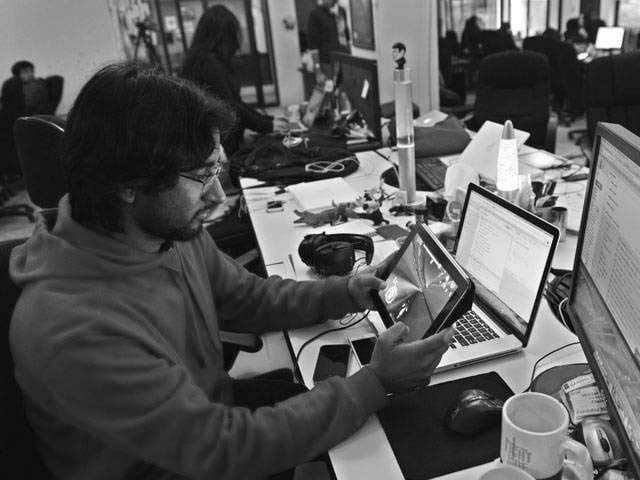The Pakistani startup landscape
Policy-level changes, Covid-19 outbreak driving boom in startups

The Pakistani startup community enjoyed a boom in 2021. The startups raised $350 million, spread across 83 deals. This shows an increase of 355% in investment and 63% in the number of deals relative to the previous year. Policy-level changes by the State Bank of Pakistan (SBP) and the Securities and Exchange Commission of Pakistan (SECP), the outbreak of Covid-19 pandemic giving a boost to digitalisation and the macroeconomic considerations were all crucial factors behind the boom.
Overall, venture capital funding in Pakistan as a percentage of GDP grew 10 times faster than the MENA region over the last three years and is now at parity. The growth and achievements of the Pakistani startup system in the past year have been comprehensively documented by a recent report published by invest2innovate, which draws both primary and secondary data on startup firms and illustrates the achievements of the Pakistani startups in 2021. The report also highlights the key challenges faced and the way forward.
Pakistani startups: key data
Total market capitalisation of all Pakistani startups currently lies between an estimated $1.5 billion and $2 billion, which is expected to increase to $6 billion over the next five years and $30 billion by 2030. A new breed of founders has emerged who have initiated work to digitise traditional sectors such as agriculture, logistics and financial services.
Digital technologies aiming to tap the growing population of Pakistan have been an important factor in attracting international investors to invest in Pakistani startups. This was also evident in 2021 where 40% of all disclosed investors in Pakistani startups were international venture capitalists, an increase of 122% relative to the previous year. Importantly, not only did the number of deals rise in 2021, the average deal size also increased.
This is evident from the invest2innovate report, which states that the average ticket size grew almost four times to $5.8 million in 2021 relative to $1.6 million in 2020. Airlift’s $85 million and Bazaar’s $30 million stand out as the two deals raising the highest amount of financing. Besides Airlift and Bazaar, other big deals were also generally concentrated in the e-commerce sector. With digitisation being our future, this is also evident from investor behaviour where venture capitalists are keen to invest in companies with growth prospects in exchange for a stake in equity.
Challenges and way ahead
According to the World Economic Forum, the current technological revolution, an outcome of which is rapid digitisation, will fundamentally alter the way we work and relate to one another. Information and communication technology (ICT) has been widely acknowledged over the last decade as a major driver of economic growth in developing countries including Pakistan.
In the past, growth rates of technology companies have been largely defined as their success, but similar to running a marathon, business pacing and perseverance is paramount for the success and longevity of these firms. Startup firms need to think critically about the strategic principles to follow and endure. This should be complemented with the cooperation of federal and local governments providing a favourable environment for startups to thrive.
THE WRITER IS A DOCTORAL CANDIDATE AT THE BARTLETT, UCL



















COMMENTS
Comments are moderated and generally will be posted if they are on-topic and not abusive.
For more information, please see our Comments FAQ